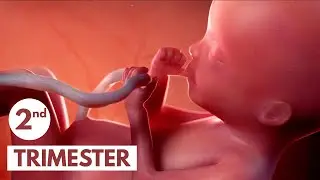Different types of decay | Alpha vs. Beta vs. Gamma decay | Visual Explanation
What happens in alpha, beta and gamma decay? What are the differences between these three types of decay? This video provides a concise overview of the different types of decay. This video is particularly useful for students, physicians and physicists who would like to know more about the characteristics of the different types of decay.
Summary:
In alpha decay, the nucleus loses two protons. In beta decay, the nucleus either loses a proton (beta plus decay) or gains a proton (beta minus decay). Both alpha and beta decay change the number of protons in an atom’s nucleus, thereby changing the atom to a different element. In gamma decay, no change in proton number occurs, so the atom does not become a different element. Radioactive decay can damage living things. Alpha decay is the least damaging (because of the low penetrating power), and gamma decay is the most damaging.
Timecodes:
0:00 Introduction
0:30 What is Alpha Decay?
1:41 (Harmful) effects of Alpha Decay.
2:51 What is Beta Decay?
3:55 What is Beta Plus Decay?
4:17 What is Beta Minus Decay?
4:47 Applications of Beta Decay (Brachytherapy + PET).
5:43 What is Gamma Decay?
6:40 Applications of Gamma Decay (Oncology + Food Preservation).
7:20 Summary
7:56 The end.



















